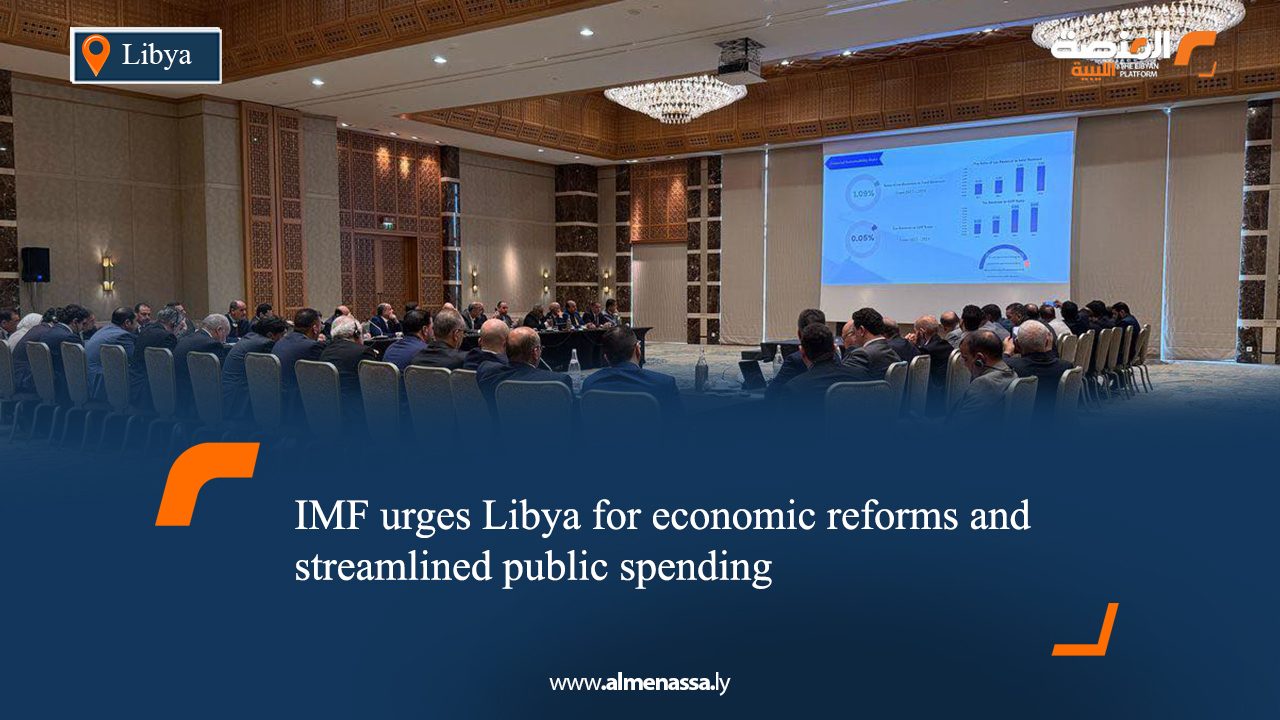Following constructive consultations between the International Monetary Fund (IMF) and the Governor of the Central Bank of Libya, Naji Issa, in Tunis, the IMF has issued a set of recommendations aimed at achieving sustainable economic stability and fostering inclusive growth in Libya.
In its statement, the IMF emphasized the paramount importance of adopting a unified and transparent state budget for Libya to enhance the credibility of government fiscal policies. Particularly, concerning salaries and government subsidies.
The package of recommendations included a clear and pressing call for the relevant Libyan authorities to initiate structural reforms in wage policies and the government subsidy system, with a particular focus on reforming fuel subsidies, which consume a significant portion of public resources. In addition, the Fund recommended the necessity of working to broaden and diversify the state’s non-oil revenue base to reduce excessive reliance on oil as the sole source of national income, which makes the Libyan economy vulnerable to global oil price fluctuations.
In the context of monetary policy, the IMF called for serious and well-considered steps to gradually and systematically reduce the gap between the official exchange rate of the Libyan currency and the parallel rate in the black market. It also recommended the cautious abolition of the foreign exchange tax in a manner that ensures no economic shocks are triggered. Simultaneously, the Fund called for protection of the country’s foreign exchange reserves and maintaining them at their current levels, which it described as still within “comfortable levels.
In its analysis of recent economic performance, the IMF noted that Libya’s inflation rate reached approximately 2% during 2024 attributed to extensive government subsidies for basic goods and services. However, the Fund revealed preliminary estimates indicating a deficit in the Libyan state’s public budget for the same year.
Regarding prospects, the IMF expressed optimism about the potential for a rebound in Libya’s GDP growth during 2025, primarily driven by the anticipated expansion in Libyan oil production. Nevertheless, it emphasized the urgent need to launch an economic reform plan to stimulate the growth of the Libyan private sector and enhance the business and investment environment in the country.
In conclusion of its report, the IMF warned against the persistence of structural weaknesses in the areas of public governance, efficient and transparent public spending management, and the rule of law, stressing the urgent need to build effective institutional capacities for managing the state’s public finances and to strengthen efforts to combat money laundering and the financing of terrorism. This is deemed crucial for supporting the relationships of Libyan banks with their correspondent banks abroad.
The Fund also underscored the necessity of restoring citizens’ confidence in the Libyan financial and banking sector and addressing the phenomenon of cash hoarding outside the official banking system.


